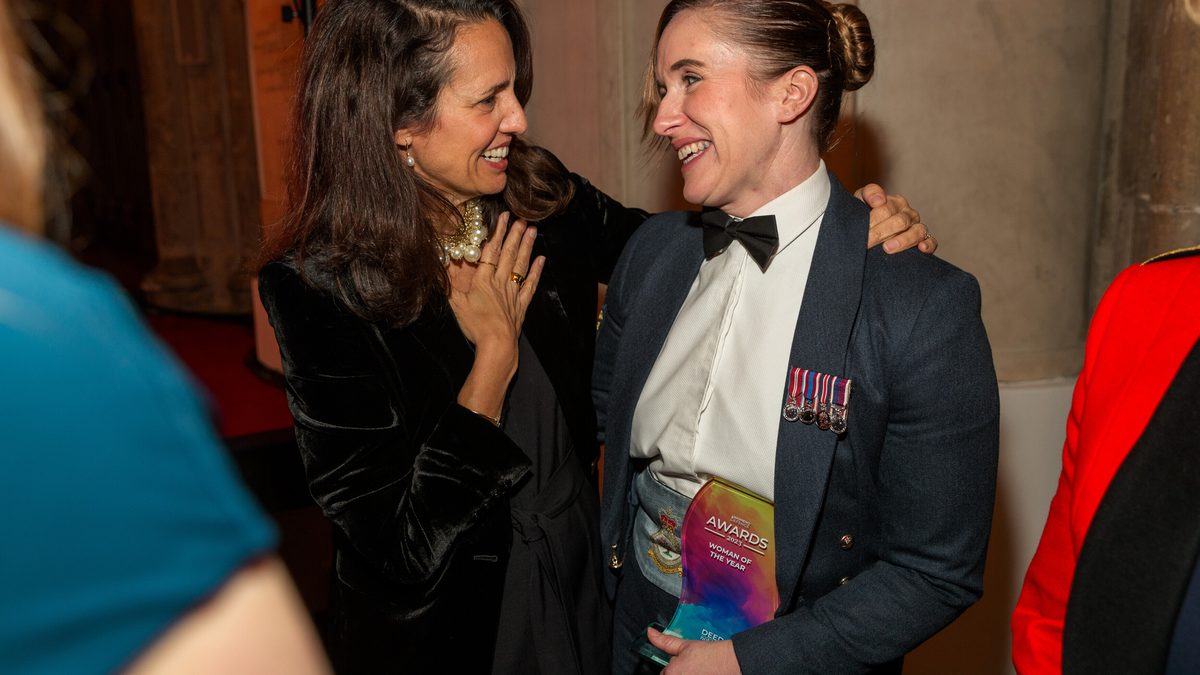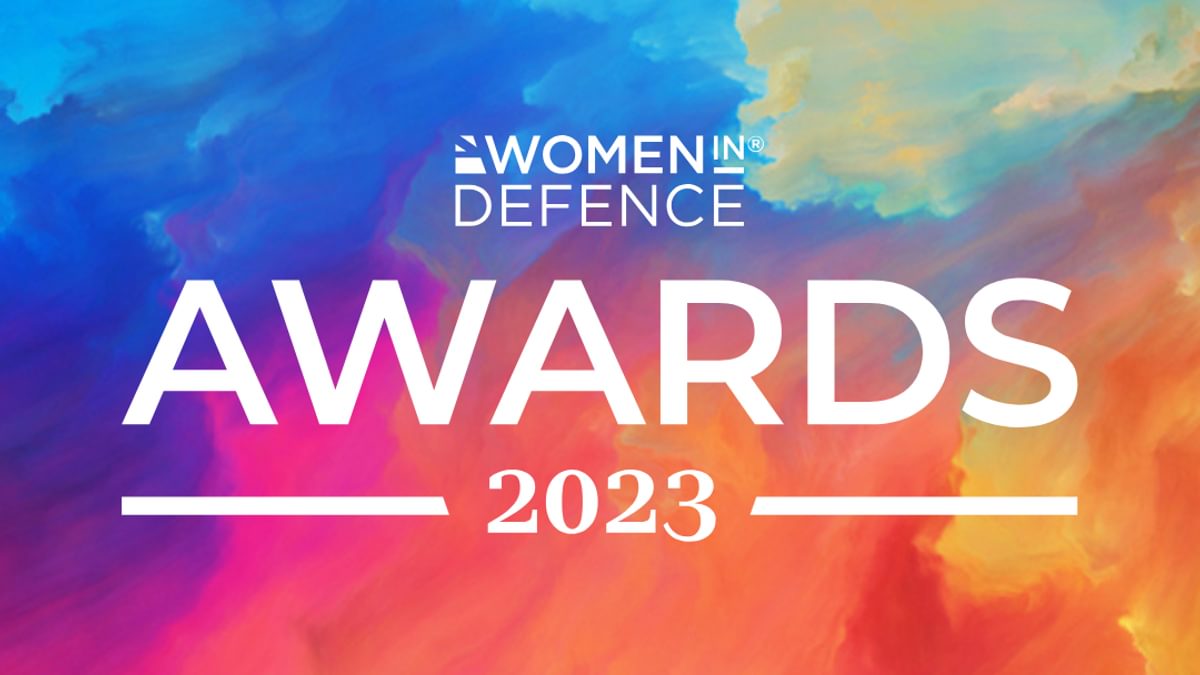Woman of the Year
PA Consulting
Partner
Chief Technician Emma Morgan
Royal Air Force
Inspirational Award
Lockheed Martin
Partner
Winner
Lisa Hodge
MOD Civil Service
Finalists
Lieutenant Isobel Rawlinson
Royal Navy
Lisa Hodge
MOD Civil Service
Regimental Sergeant Major Lucy Read
Army
Shortlist
Lieutenant Isobel Rawlinson
Royal Navy
Lisa Hodge
MOD Civil Service
Regimental Sergeant Major Lucy Read
Army
Kirsty Tilley
Dstl
Lucy Crowther
MOD Civil Service
Flight Sergeant Freya Lees
Royal Air Force
Dr Sellah King'Oro
MOD Civil Service
Outstanding Contribution Award
BAE Systems
Partner
Winner
Lieutenant Colonel Kelly Tait
Army
Finalists
Sergeant Hannah Kenyon
Army
Lieutenant Colonel Kelly Tait
Army
Pauline Lewis
MOD Civil Service
Shortlist
Sergeant Hannah Kenyon
Army
Lieutenant Colonel Kelly Tait
Army
Pauline Lewis
MOD Civil Service
Sergeant Anna Kinsley
Army
Fani Andreou
MOD Civil Service
Major Fran Sykes
Army
Sergeant Jasmine Carter-Morley
Army
Lisa Syme
Leonardo
Most Collaborative Award
KBR
Partner
Winner
Lorna Pope
MoD Civil Service
Finalists
Claire Hussey
MoD Civil Service
Jessica McCartan
MoD Civil Service
Lorna Pope
MoD Civil Service
Shortlist
Claire Hussey
MoD Civil Service
Jessica McCartan
MoD Civil Service
Lorna Pope
MoD Civil Service
Kelly Bindemann
Inzpire Ltd
Lyndsay Zalkin
MOD Civil Service
Dr Sarah Hollis
MOD Civil Service
Resolute Spirit Award
Royal Navy
Partner
Winner
Chief Technician Emma Morgan
Royal Air Force
Finalists
Chief Technician Emma Morgan
Royal Air Force
Major Katherine Page
Army
Kirsty Jackson
Thales UK
Shortlist
Chief Technician Emma Morgan
Royal Air Force
Major Katherine Page
Army
Kirsty Jackson
Thales UK
Lisa Roper
MOD Civil Service
Captain Sally Willis
Army
Val
MI5
Equity of Opportunity Award
Eviden
Partner
Winner
Jo Osburn-Hughes
MoD Civil Service
Finalists
Bethany Lowe
BAE Systems
Jo Osburn-Hughes
MoD Civil Service
Nicola
Royal Air Force
Shortlist
Bethany Lowe
BAE Systems
Jo Osburn-Hughes
MoD Civil Service
Nicola
Royal Air Force
Eve Birrell
Costain
Commander Lucy Ottley
Royal Navy
Wolf Pack of Electronic Engineering
MBDA UK
Emerging Talent Award
Army
Partner
Winner
Sapper Hermione Romain
Army
Finalists
Second Lieutenant Ezme Hollick
Army
Sapper Hermione Romain
Army
Air Engineering Technician Melissa Cummins
Royal Navy
Shortlist
Second Lieutenant Ezme Hollick
Army
Sapper Hermione Romain
Army
Air Engineering Technician Melissa Cummins
Royal Navy
Able Seaman Charlie Grant
Royal Navy
Jahnavi Monya
QinetiQ
Niamh Ward
Dstl
Nikita Shetti
Airbus Defence and Space
Sub Lieutenant Victoria Marshall
Royal Navy
Unsung Heroines Award
Leidos
Partner
Winner
Debs Geany
MoD Civil Service
Finalists
Debs Geany
MoD Civil Service
Corporal Elizabeth Driver
Royal Air Force
Susan Hetzke
MoD Civil Service
Shortlist
Debs Geany
MoD Civil Service
Corporal Elizabeth Driver
Royal Air Force
Susan Hetzke
MoD Civil Service
Di
MI5
Staff Sergeant Michelle Patterson
Army
Nichola Dugmore
MOD Civil Service
Paige Murphy
Babcock
Innovation and Creativity Award
QinetiQ
Partner
Winner
Sam Staincliffe
Uplift 360
Finalists
Guyani
MI5
Sam Staincliffe
Uplift 360
Sareena
NCA
Shortlist
Guyani
MI5
Sam Staincliffe
Uplift 360
Sareena
NCA
Major Nicole Walker
Army
Suzy Harris
MOD Civil Service
Zeba Khanam
BT
Champion for Maximising Talent
Northrop Grumman
Partner
Winner
Mary Haigh
BAE Systems
Finalists
Ellen Harrison
Boeing
Mary Haigh
BAE Systems
Servicewomen’s Representatives on HCDC Inquiry Response
Joint
Shortlist
Ellen Harrison
Boeing
Mary Haigh
BAE Systems
Servicewomen’s Representatives on HCDC Inquiry Response
Joint
Holly Pattison
Northrop Grumman UK
Sophie Ball
Northrop Grumman UK
Inclusive Teamwork Award
Royal Air Force
Partner
Winner
HMS Northumberland Change Working Group
Royal Navy
Finalists
Gender Equity Network
BAE Systems
Herald RFA Inclusivity Committee
Royal Navy
HMS Northumberland Change Working Group
Royal Navy
Shortlist
Gender Equity Network
BAE Systems
Herald RFA Inclusivity Committee
Royal Navy
HMS Northumberland Change Working Group
Royal Navy
Military Maternity Voices
Joint
Servicewomen's Health Improvement Focus Team (SHIFT)
Joint



